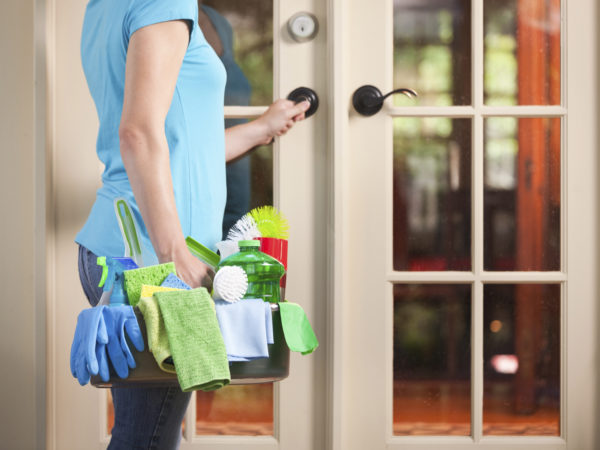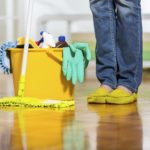Are Household Cleaners Harmful?

It’s no secret that almost all conventional household cleaners contain some toxic ingredients. Many contain carcinogens or suspected carcinogens, as well. However, the danger the chemicals pose really depends on how often you use the products in which they’re found and the length of time you’re exposed to the fumes. Some of the effects are unpleasant but transient. Here’s a list of some of the common chemicals found in household products and the symptoms they can cause.
- Chlorine bleach (sodium hypochlorite): If mixed with ammonia, vinegar or other acid-based cleaners, it will release toxic chloramine gas; short-term exposure to this gas can cause mild asthmatic symptoms or more serious respiratory problems. Never mix bleach with these other substances.
- Petroleum distillates: Found in metal polishes, these chemicals can irritate the eyes and lungs; longer-term exposure can damage the nervous system, kidneys, eyes and skin.
- Ammonia: Can irritate eyes and lungs and cause headaches.
- Phenol and cresol: Found in disinfectants, and if ingested can cause diarrhea, fainting, dizziness, and kidney and liver damage.
- Nitrobenzene: Found in furniture and floor polishes, and if inhaled can cause shallow breathing; if ingested can cause poisoning and death. This substance has also been linked to cancer and birth defects.
- Formaldehyde: Used as a preservative in many household products, formaldehyde is a suspected human carcinogen that can irritate your eyes, throat, skin and lungs.
- Naphthalene: Found in mothballs, this suspected carcinogen may damage the eyes, blood cells, liver, kidneys, skin and the central nervous system.
- Paradichlorbenzene: Another chemical in mothballs, can harm the central nervous system, liver and kidneys.
- Hydrochloric acid or sodium acid sulfate: Found in toilet bowl cleaners, these chemicals can burn the skin and cause blindness if splashed in the eyes, or can burn the stomach if ingested.
To learn more about the hazards of chemicals in common household products, I suggest visiting www.epa.gov, the Web site of the Environmental Protection Agency. The EPA advises buying only nontoxic, unscented cleaning products such as those that can be found from mail-order sources or in health-food stores. Another possibility is to substitute gentler products such as baking soda, vinegar, salt and vegetable oil-based liquid soap for most household cleaning.










